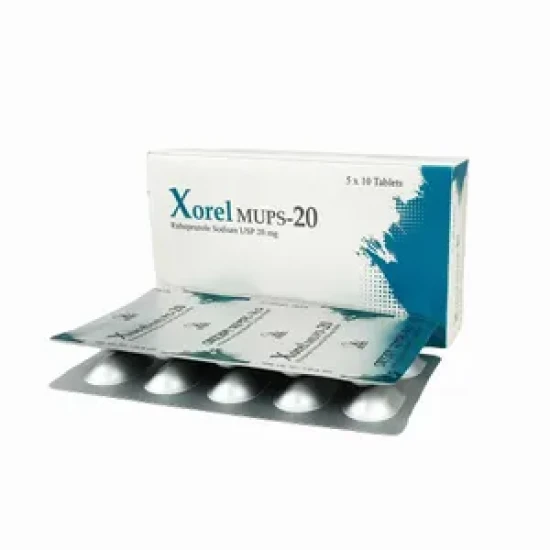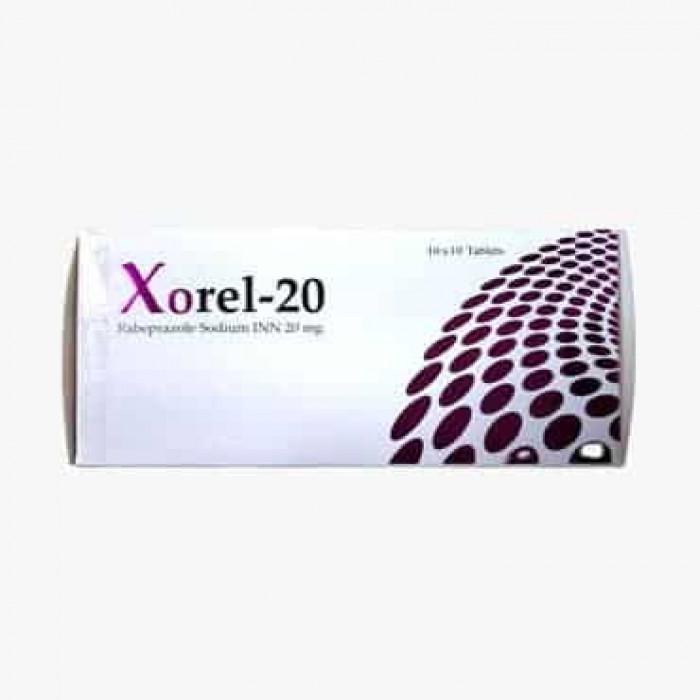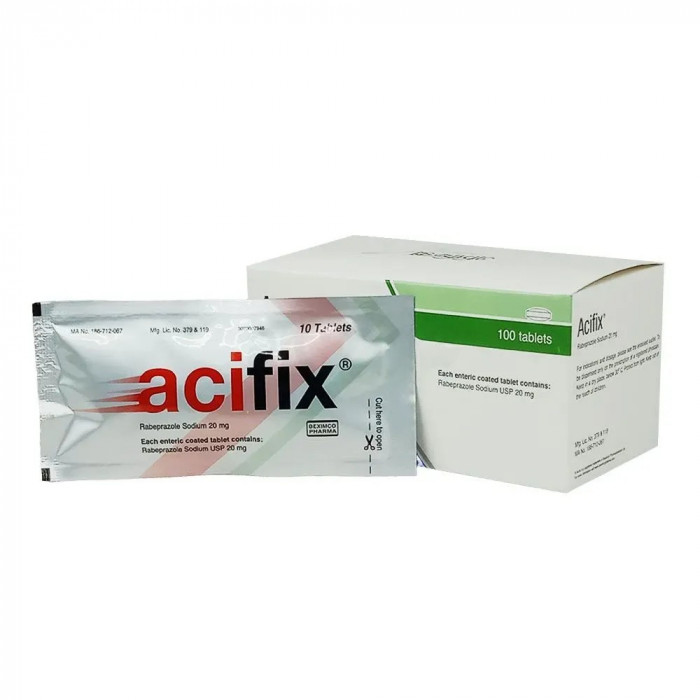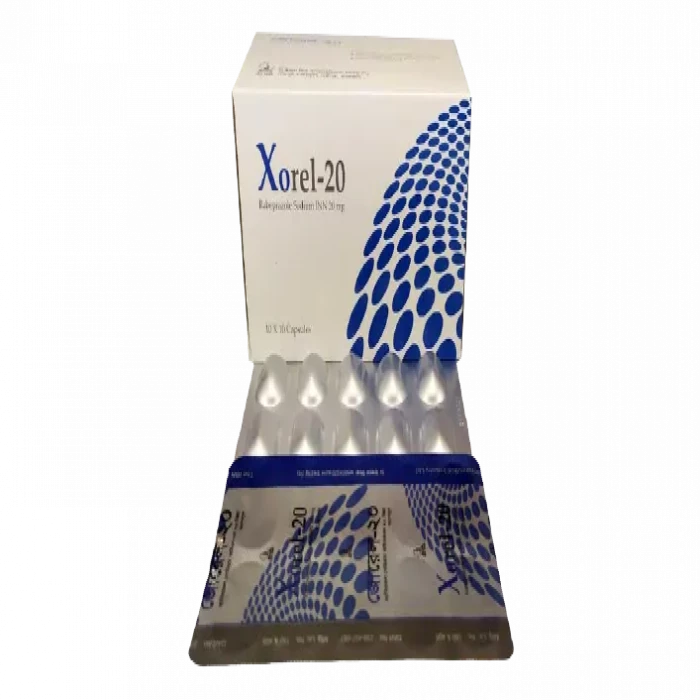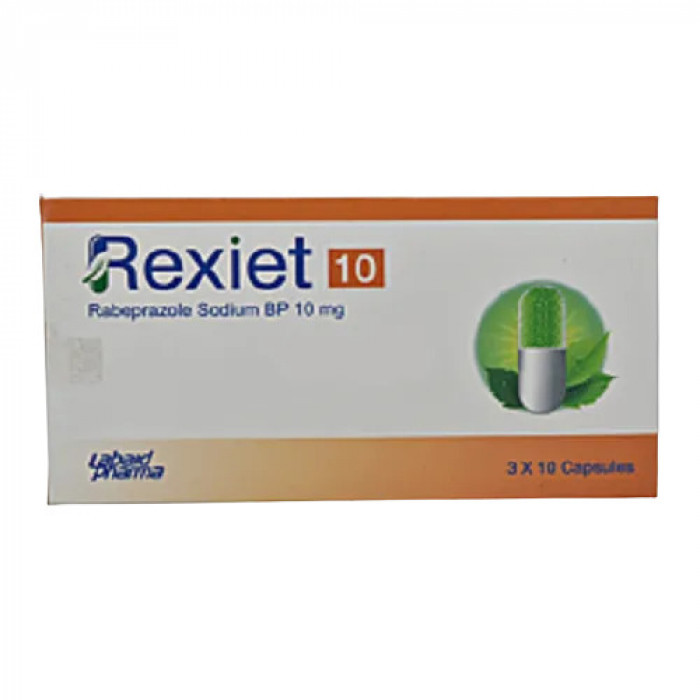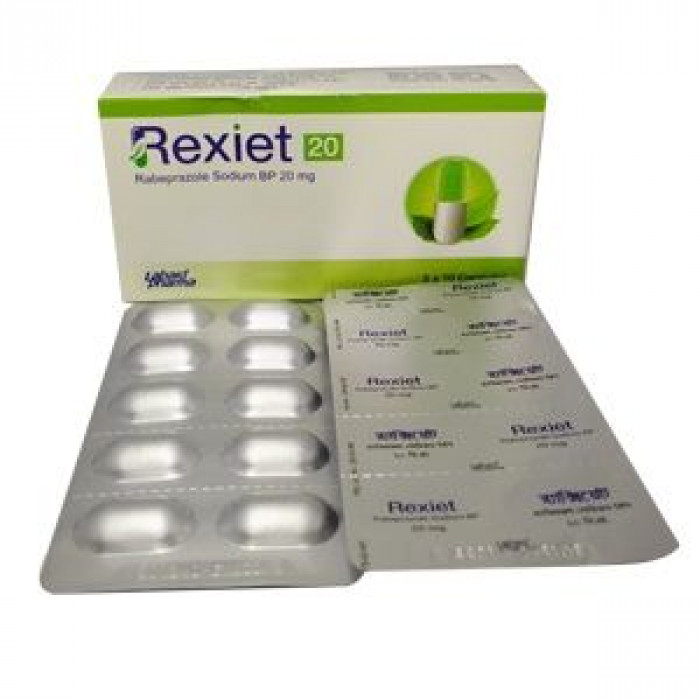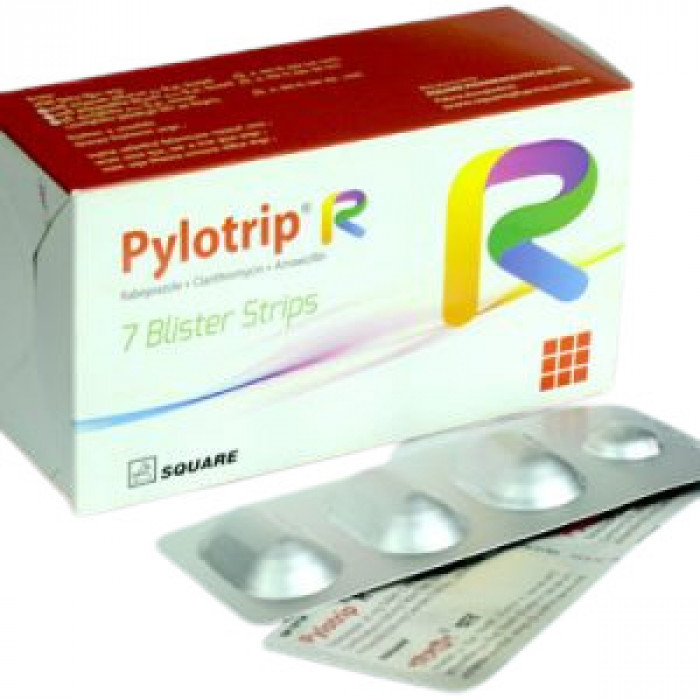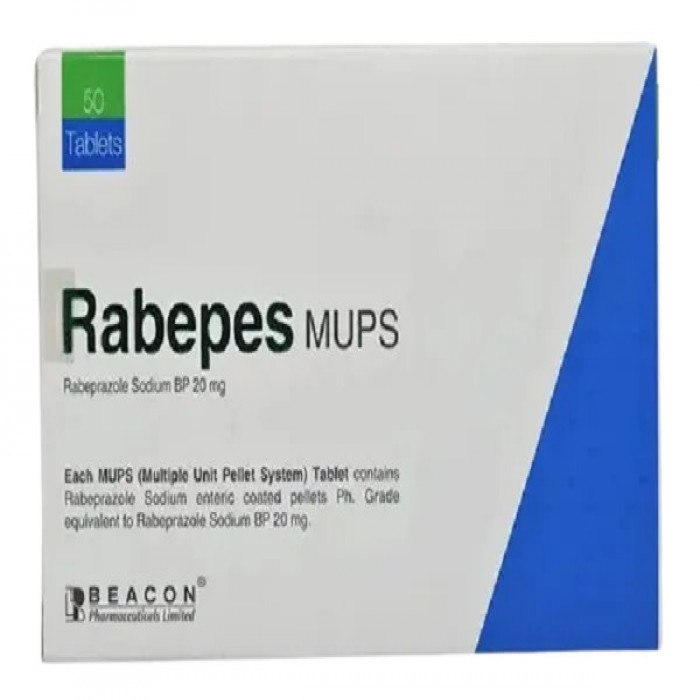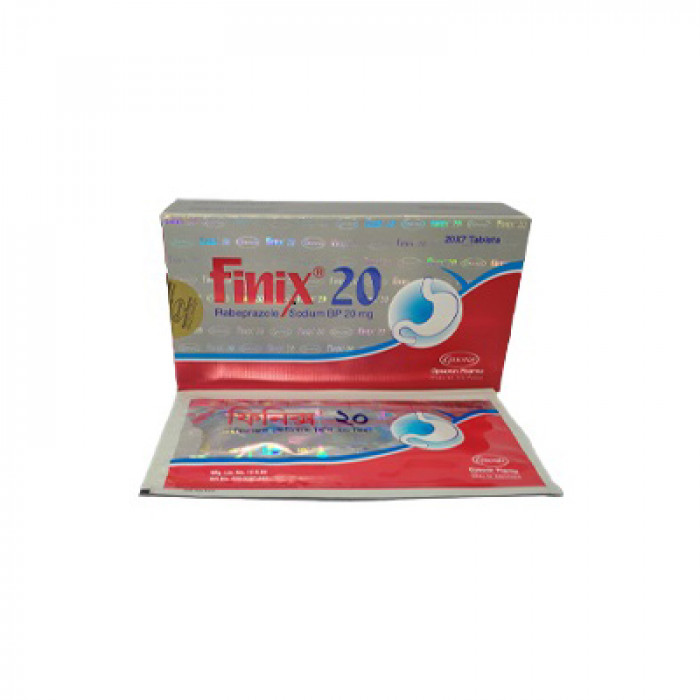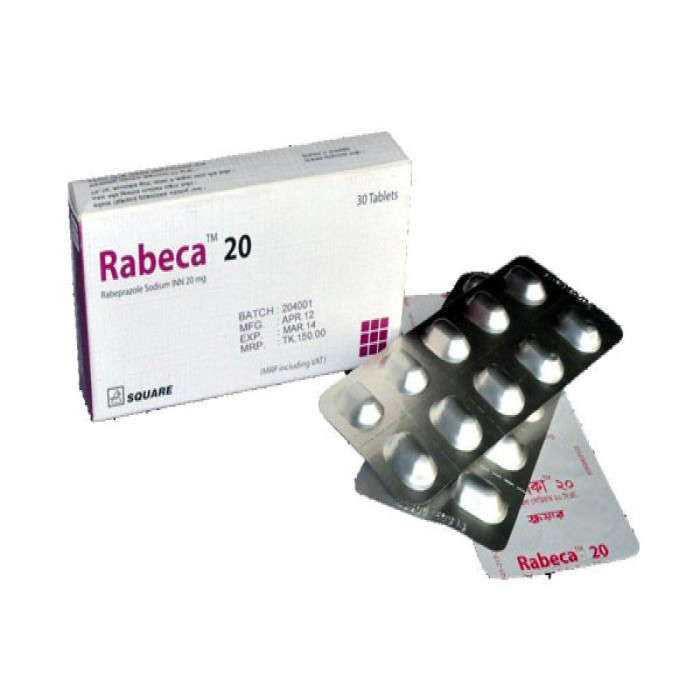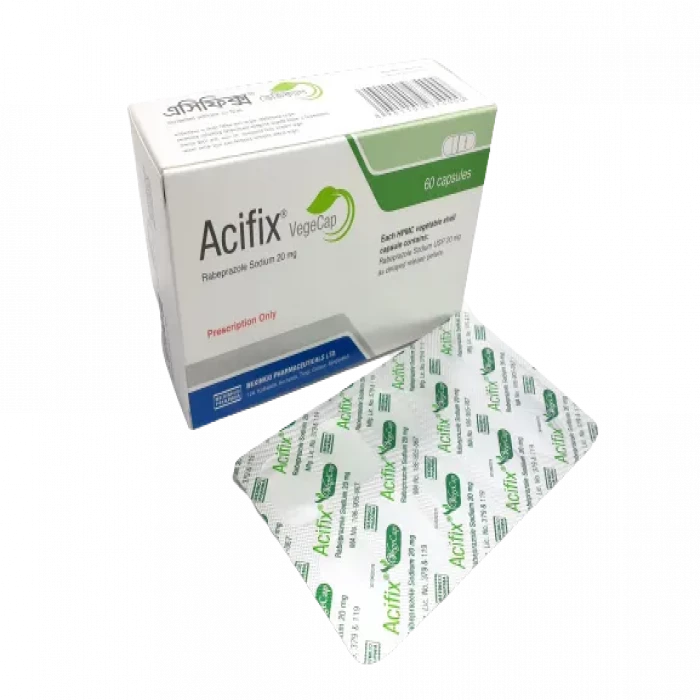
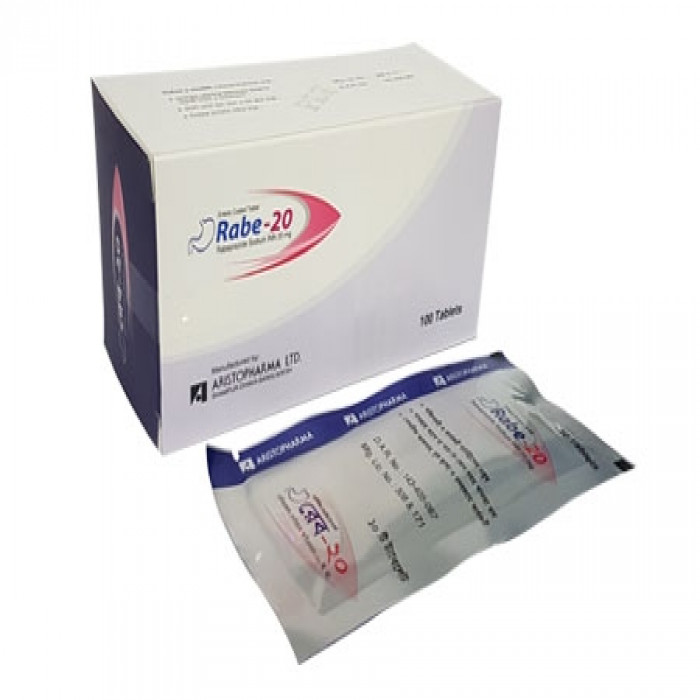
✔ 100% Authentic Product
👁️ Currently Viewing 8645
- Potent & fast-acting Proton Pump Inhibitor.
- Can be taken anytime before or after food.
- Effective in Peptic Ulcer, Heartburn & Dyspepsia.
Discount
Price: ৳ 133
MRP:
৳
140
5%
Off

100% Genuine Products, Guaranteed

Safe & Secure Payments, Always

Fast, Secure & Efficient Delivery

Proper Packaging
 Cash on Delivery - All over Bangladesh
Cash on Delivery - All over Bangladesh Regular Delivery - 12-24 Hours, Dhaka City* Charge Tk.39-59
Regular Delivery - 12-24 Hours, Dhaka City* Charge Tk.39-59 Regular Delivery - 24-48 Hours, Other Cities* Charge Tk.99-110
Regular Delivery - 24-48 Hours, Other Cities* Charge Tk.99-110
🌙 রমযান অফার 🌙
 ফ্রি ডেলিভারিঃ - ৭৯৯ টাকা+ অর্ডারে, ঢাকা
শহরে
ফ্রি ডেলিভারিঃ - ৭৯৯ টাকা+ অর্ডারে, ঢাকা
শহরে ফ্রি ডেলিভারিঃ - ২৭৯৯ টাকা+ অর্ডারে, ঢাকার
বাহিরে
ফ্রি ডেলিভারিঃ - ২৭৯৯ টাকা+ অর্ডারে, ঢাকার
বাহিরে
📲 মোবাইল অ্যাপ অর্ডারে সাশ্রয় বেশী
-
Google Play Store থেকে ডাউনলোড
-
Apple Store থেকে ডাউনলোড
100% Genuine Products, Guaranteed
Safe & Secure Payments, Always
Fast, Secure & Efficient Delivery
Proper Packaging
 Cash on Delivery - All over Bangladesh
Cash on Delivery - All over Bangladesh Regular Delivery - 12-24 Hours, Dhaka City* Charge Tk.39-59
Regular Delivery - 12-24 Hours, Dhaka City* Charge Tk.39-59 Regular Delivery - 24-48 Hours, Other Cities* Charge Tk.99-110
Regular Delivery - 24-48 Hours, Other Cities* Charge Tk.99-110 ফ্রি ডেলিভারিঃ - ৭৯৯ টাকা+ অর্ডারে, ঢাকা
শহরে
ফ্রি ডেলিভারিঃ - ৭৯৯ টাকা+ অর্ডারে, ঢাকা
শহরে ফ্রি ডেলিভারিঃ - ২৭৯৯ টাকা+ অর্ডারে, ঢাকার
বাহিরে
ফ্রি ডেলিভারিঃ - ২৭৯৯ টাকা+ অর্ডারে, ঢাকার
বাহিরে- Google Play Store থেকে ডাউনলোড
- Apple Store থেকে ডাউনলোড
🌙 রমযান অফার 🌙
📲 মোবাইল অ্যাপ অর্ডারে সাশ্রয় বেশী
✅ Description:
Rabe 20 is an ulcer-treating medication that includes Rabeprazole. It is used to treat disorders of the stomach and intestine that are caused by excessive acid production, including peptic ulcers, acid reflux, and several other ailments of the stomach. It functions by decreasing the quantity of acid your stomach produces.
Safety Advices

Alcohol
CAUTION
Rabe 20 while consuming alcohol should be used with caution.

Pregnancy
CONSULT YOUR DOCTOR
Due to a lack of research, please consult with your doctor before taking Rabe 20.

Breastfeeding
CONSULT YOUR DOCTOR
Due to a lack of research, please consult with your doctor before taking Rabe 20.

Driving
CONSULT YOUR DOCTOR
No Information was found.

Kidney
SAFE IF PRESCRIBED
Rabe is safe to use in patients with kidney disease.

Liver
CONSULT YOUR DOCTOR
If you are a liver patient, please consult your health care provider.
✔️ Uses of Rabe 20:
- Treatment of Gastroesophageal Reflux Disease
- Treatment of Peptic Ulcer disease
- Erosive Esophagitis
- Helicobacter pylori Infection
- Zollinger-Ellison Syndrome
- Gastric and Duodenal Ulcers
✔️ Side Effects of Rabe 20:
Rabe 20 is generally well-tolerated in both short and long-term studies.
- Headache
- Diarrhea
- Abdominal discomfort
- Vomiting constipation
- Dry mouth
- Increased or decreased hunger
- Muscle soreness
- Sleepiness and dizziness
✔️ How to use Rabe 20:
It is important to follow your doctor's instructions for taking this medicine. Swallow the tablet whole and do not crush, chew, or break it. Rabe should be taken on an empty stomach.
✔️ Quick Suggestions of Rabe 20:
- Rabe 20mg Tablet is a medication that is well-tolerated and lasts a very long period.
- Avoid eating Rabe 20mg Tablet just before going to bed or in the evening.
- If you get a fever, watery diarrhea, or persistent stomach pain, call your doctor right immediately.
- After taking Rabe 20mg Tablet for 14 days, if you still don't feel better, let your doctor know as you could have another issue that needs care.
- Use of Rabe 20 for an extended period of time may result in weak bones and a lack of nutrients like magnesium. As directed by your doctor, get enough calcium and magnesium in your diet or as supplements.
- If you experience reduced urine, edema (swelling brought on by fluid retention), lower back discomfort, nausea, exhaustion, rash, or fever, call your doctor immediately once. These might be signs of a kidney problem.
✔️ How to use Rabe 20
Take this medicine in the dose and duration as advised by your doctor. Swallow it as a whole. Do not chew, crush or break it. Rabe 20 is to be taken empty stomach.
✔️ How Rabe 20 works:
Rabe 20 is a proton pump inhibitor (PPI). It works by reducing the amount of acid in the stomach which helps in the relief of acid-related indigestion and heartburn.
✔️ What if you forget to take Rabe 20?
If you miss a dose of Rabe 20, take it as soon as possible. However, if it is almost time for your next dose, skip the missed dose and go back to your regular schedule. Do not double the dose.
✔️ Indications of Rabe 20:
Rabeprazole is indicated in Duodenal ulcer Healing of erosive or ulcerative Gastroesophageal Reflux Disease (GERD). Treatment of symptomatic GERD. Maintenance of healing of erosive or ulcerative GERD Zollinger-Ellison Syndrome. Helicobacter pylori eradication to reduce the Risk of Duodenal Ulcer Recurrence.
✔️ Pharmacology of Rabe 20:
Rabeprazole suppresses gastric acid secretion by inhibiting gastric ATPase H + / K + on the secretory surface of the gastric parietal cell. Since this enzyme is considered an acid (proton) pump in the parietal cell, rabeprazole has been characterized as a gastric proton pump inhibitor.
✔️ Dosage of Rabe 20:
Active Duodenal Ulcer and Active Benign Gastric Ulcer:
- A 20 mg oral dosage, administered once daily in the morning, is advised for both active duodenal ulcers and active benign gastric ulcers. Active duodenal ulcers typically heal in four weeks for most people. A few individuals, meanwhile, could need an extra four weeks of treatment to recover. With active benign stomach ulcers, the majority of patients recover within six weeks. Again, a small number of patients could need an extra six weeks of treatment to recover.
Gastro-Esophageal Reflux Disease (GERD) with Erosive or Ulcerative Complications:
- The suggested oral dose for this disease is 20 mg, administered once a day for four to eight weeks.
- Patients without oesophagitis should take 10 mg once daily for the symptomatic treatment of moderate to extremely severe gastroesophageal reflux disease (symptomatic GERD). If symptom management is not achieved after four weeks, the patient has to undergo further testing. After symptoms have subsided, symptom management can be obtained utilizing an as-needed regimen that involves taking 10 mg once daily.
- The recommended adult beginning dosage for Zollinger-Ellison syndrome is 60 mg once daily. Depending on the demands of each patient, the dose may be increased up to 120 mg/day. The maximum single daily dosage is 100 mg. 60 mg twice daily in split doses for a 120 mg dosage is possible. Treatment should last as long as necessary for therapeutic indication.
The disease of Gastro-Esophageal Reflux Long-term Management (GERD Maintenance):
- Depending on the patient's reaction, a maintenance dose of 20 mg or 10 mg of rabeprazole sodium once daily may be used for the long-term management of GERD.
H. pylori eradication:
- Patients who have H. pylori infection should receive eradication medication. It is advised to take the following mixture for seven days. Amoxicillin 1g twice daily, clarithromycin 500 mg twice daily, and rabeprazole sodium 20 mg twice daily.
✔️ Administration of Rabe 20:
For indications requiring once-daily treatment, Rabe-20 tablets should be taken in the morning, before eating; and although neither the time of day nor food intake was shown to have any effect on rabeprazole sodium activity, this regimen will facilitate treatment compliance. Patients should be cautioned that the Rabe-20 tablets should not be chewed or crushed, but should be swallowed whole.
✔️ Interaction of Rabe 20:
Restraint of gastric acid secretion is significantly and lastingly achieved through the use of Rabeprazole. However, there is a possibility of an interaction with a compound whose absorption is pH-dependent. If Rabeprazole is co-administered with ketoconazole or itraconazole, there may be a significant reduction in antifungal plasma levels, and individual patients may need to be monitored to determine if a dosage adjustment is necessary. No interaction was observed with liquid antacids. PPIs, including Rabeprazole, should not be co-administered with atazanavir because the absorption of atazanavir is pH-dependent.
✔️ Contraindications of Rabe 20:
Hypersensitivity to the active ingredient or any excipient. Rabeprazole is not recommended during pregnancy or nursing.
✔️ Pregnancy & Lactation:
US FDA pregnancy category 'C'. Thinks about have been performed in creatures and have uncovered no proof of impeded ripeness or hurt to the embryo due to Rabeprazole. There are, be that as it may, no satisfactory and well-controlled ponders in pregnant ladies. Rabeprazole is likely to be excreted in the human brain, a choice ought to be made whether to suspend nursing or to suspend the sedate, taking into consideration the significance of the sedate to the mother.
✔️ Precautions & Warnings of Rabe 20:
Before starting the medication, it is important to check for the possibility of stomach cancer. The medication should not be used in cases of severe liver damage, during pregnancy, or while breastfeeding. Monitoring of magnesium levels should be done before starting the medication and periodically during prolonged use. The effect of the medication on breastfeeding infants and milk production is not known as lactation studies have not been conducted. Although the benefits of breastfeeding should be considered, the potential risks from the medication or the underlying maternal condition should also be taken into account. It should be noted that the medication has been found in rat milk.
✔️ Storage Conditions of Rabe 20:
- Keep the temperature below 30°C and away from light and moisture. Keep out of children's reach.
- Discard appropriately unused medicine after expiry.
⚠️Disclaimer:
At ePharma, we’re committed to providing accurate and accessible health information. However, all content is intended for informational purposes only and should not replace medical advice from a qualified physician. Please consult your healthcare provider for personalized guidance. We aim to support, not substitute, the doctor-patient relationship.




